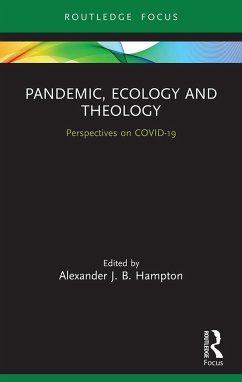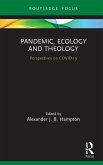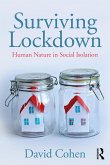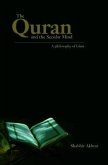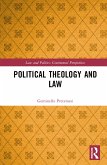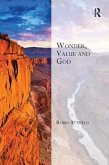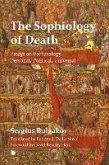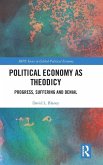As the sequential stages of the 2020 COVID-19 pandemic have unfolded, so have its complexities. What initially presented as a health emergency, has revealed itself to be a phenomenon of many facets. It has demonstrated human creativity, the oft neglected presence of nature, and the resilience of communities. Equally, it has exposed deep social inequities, conceptual inadequacies, and structural deficiencies about the way we organize our civilization and our knowledge.
As the situation continues to advance, the question is whether the crisis will be grasped as an opportunity to address the deep structural, ecological and social challenges that we brought with us into the second decade of the new millennium. This volume addresses the collective sense that the pandemic is more than a problem to manage our way out of. Rather, it is a moment to consider our broken relationship with the natural world, and our alienation from a deeper sense of purpose and meaning.
The contributors, though differing in their diagnoses and recommendations, share the belief that this moment, with its transformative possibility, not be forfeit. Equally, they share the conviction that the chief ground of any such reorientation ineluctably involves our collective engagement with both ecology and theology.
As the situation continues to advance, the question is whether the crisis will be grasped as an opportunity to address the deep structural, ecological and social challenges that we brought with us into the second decade of the new millennium. This volume addresses the collective sense that the pandemic is more than a problem to manage our way out of. Rather, it is a moment to consider our broken relationship with the natural world, and our alienation from a deeper sense of purpose and meaning.
The contributors, though differing in their diagnoses and recommendations, share the belief that this moment, with its transformative possibility, not be forfeit. Equally, they share the conviction that the chief ground of any such reorientation ineluctably involves our collective engagement with both ecology and theology.
"The theological essays in this brilliantly provocative book are timely, philosophically rich and go to the depth of the social and political controversies enlivened by COVID-19. This book is essential reading for anyone wondering what relevance theology has for current socio-ecological issues."
-Celia Deane-Drummond, Director, Laudato Si' Research Institute, Campion Hall, University of Oxford.
"This sparkling collection of essays reveals how the turn of theology to traditional concerns with the metaphysical and the cosmic is enabling it to undertake a visionary engagement with the new extreme human and natural crisis of our time."
-Catherine Pickstock, Norris-Hulse Professor of Divinity, University of Cambridge.
"This volume is not only timely, it is essential reading for those who want to understand how theology and theologians are responding to our all-encompassing pandemic. Provocative and suggestive for reimagining human-Earth relations."
-Mary Evelyn Tucker, Yale Forum on Religion and Ecology.
"To say that this book is timely in a difficult and painful time is to say that it intervenes, maybe even rescues theology from failing to connect the dots between the pandemic, our ecological crisis, and the realities of oppression that also plague us. The rightly celebrated contributors to this book provide insights that help us see what must be thought and what must be done in order to keep us from the endless repetition of this suffering. Yet they also remind us what theology must look like in order not to contribute to that same suffering."
-Willie James Jennings, Associate Professor of Systematic Theology and Africana Studies, Yale Divinity School.
"Alexander Hampton's volume is remarkable for the range and authority of its authors, and the profound way in which they address a pandemic that has upended lives and communities across the globe, and laid bare our precarious relationship to the rest of nature."
-Andrew Davison, Starbridge Lecturer in Theology and Natural Sciences, University of Cambridge.
"As these provocative essays from some of the most creative thinkers in theology and ecology probe the meaning of the pandemic, they stimulate far-reaching conversations about inherited notions of nature, God, and humanity."
-Willis Jenkins, Professor and Chair of Religious Studies, University of Virginia.
-Celia Deane-Drummond, Director, Laudato Si' Research Institute, Campion Hall, University of Oxford.
"This sparkling collection of essays reveals how the turn of theology to traditional concerns with the metaphysical and the cosmic is enabling it to undertake a visionary engagement with the new extreme human and natural crisis of our time."
-Catherine Pickstock, Norris-Hulse Professor of Divinity, University of Cambridge.
"This volume is not only timely, it is essential reading for those who want to understand how theology and theologians are responding to our all-encompassing pandemic. Provocative and suggestive for reimagining human-Earth relations."
-Mary Evelyn Tucker, Yale Forum on Religion and Ecology.
"To say that this book is timely in a difficult and painful time is to say that it intervenes, maybe even rescues theology from failing to connect the dots between the pandemic, our ecological crisis, and the realities of oppression that also plague us. The rightly celebrated contributors to this book provide insights that help us see what must be thought and what must be done in order to keep us from the endless repetition of this suffering. Yet they also remind us what theology must look like in order not to contribute to that same suffering."
-Willie James Jennings, Associate Professor of Systematic Theology and Africana Studies, Yale Divinity School.
"Alexander Hampton's volume is remarkable for the range and authority of its authors, and the profound way in which they address a pandemic that has upended lives and communities across the globe, and laid bare our precarious relationship to the rest of nature."
-Andrew Davison, Starbridge Lecturer in Theology and Natural Sciences, University of Cambridge.
"As these provocative essays from some of the most creative thinkers in theology and ecology probe the meaning of the pandemic, they stimulate far-reaching conversations about inherited notions of nature, God, and humanity."
-Willis Jenkins, Professor and Chair of Religious Studies, University of Virginia.

